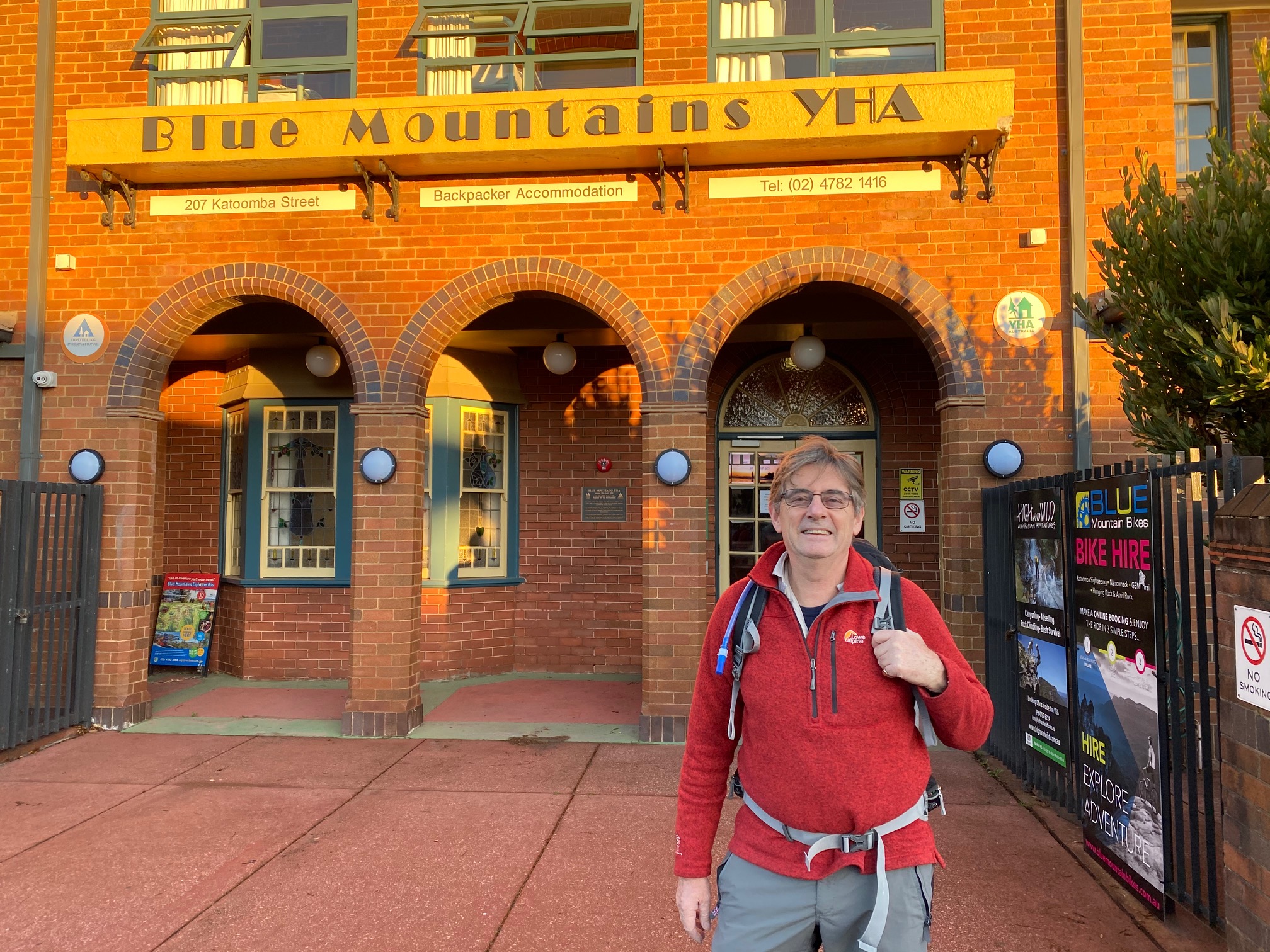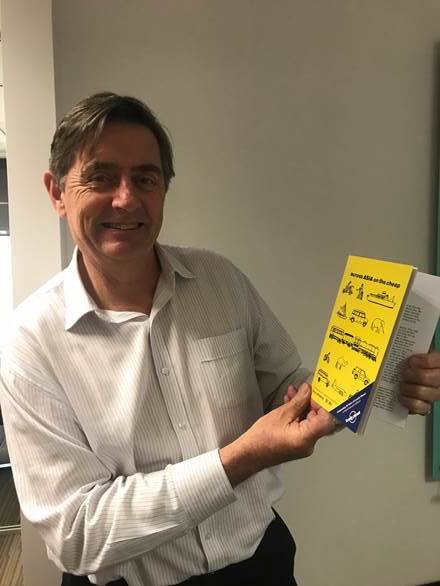News
Manchester, United Kingdom — 22-25 September 2009WYSE Archives
![]()
Reflections on 40 years of global youth tourism, by Julian Ledger
Keep up-to-date with WYSE webinars >
Former CEO of YHA Australia, Julian Ledger began his career with YHA in 1978. Following his retirement on 15 May 2020, we talk to Julian as he reflects on the changes he has witnessed in the youth travel industry over the decades.
What are the biggest changes in backpackers arriving in Australia that you’ve witnessed over the span of your career?
The Australian Working Holiday visa scheme started with just Brits, Irish and Canadians. As a native Brit, hailing from Manchester, I was one of them. Today there are 42 countries involved so a huge increase in the mix of nationalities arriving in Australia and with many staying at YHA hostels. The scheme confers work rights and so enables longer stays. Working Holiday Makers have become a valued source of labour, especially in regional areas in hospitality and farming. Whilst there are now well-established backpacker destinations and travel routes, especially up Australia’s East Coast, it still takes a little imagination to get well off the beaten track.
We successfully lobbied for relaxation of conditions – the initial visa is for 12 months but backpackers can now stay for a 2nd and even a 3rd year, subject to carrying out certain work in regional areas, for example fruit-picking. The maximum term of employment with each employer has also been extended, enabling more funds to be saved for onward travel.
Because of the length of stay and regional dispersal, the economic value of the youth sector became very well understood by regional, state and federal governments. Also, and partly because Australians are such big travellers themselves, there was growing support from the community because all these young visitors, who are more than just tourists, enrich people’s lives.
Do you believe that the backpacker as a type of youth traveller is on the decline?
The first appearance of the term ‘backpacker’ was in a Sydney YHA magazine in 1977, in the sense of an independent traveller with a backpack (as distinct from the American meaning of hiking into the ‘back country’). It rapidly came to describe not just a type of traveller but a type of travel and a class of accommodation – backpacker hostels. Language evolves and after more than forty years we should not be surprised that ‘backpacker’ may not be as prominent as it was. I think the impost of mushrooming university fees has increased pressure on graduates to gain a first foot on the career ladder. All the more reason to first grab that opportunity for a real global education through backpacker style travel.
What, if anything remains the same or “true” about backpackers?
The aspiration to travel has not diminished. Witness the cabin fever brought on at the moment by COVID-19. In your early twenties you have the drive for an adventure and the energy to make it happen. Going further and staying longer is possible by travelling in the backpacker eco system – inexpensive accommodation, a community of travellers, working along the way.

Julian outside Blue Mountains YHA, Australia
What is the most important innovation in hostels – why is it so important?
Hostels stand out as great places to meet people from all over. The challenge is to design them to deliver on that whilst also meeting expectations for greater privacy and amenity – smaller bedrooms with en-suites preferred. The people who manage them must these days be truly multi-skilled; great hosts, whilst also outstanding managers of people, revenue and facilities. Well-run hostels are also very safe places, and coming out of COVID-19 the sector needs to communicate that.
What was your involvement with the Sydney Declaration like? Are the issues outlined in the statement still relevant for hostels today?
The Sydney Declaration came about when the WYSTC Conference took place in Sydney in 2013. It developed as a WYSE member-led initiative by a group of hostels, emerging from conversations regarding the conditions that Online Travel Agents (OTAs) were including in their agreements with accommodation providers. In particular, the view was that the imposition of rate and availability parity, along with OTA pay-per-click advertising against accommodation brands, without consent, was having the effect of commoditising hostels. The Declaration was a set of principles and has had one update since. Thanks to WYSE for being involved in the conversation and providing a platform. The statement is every bit as relevant today, and this story has a way to run. My fear is that as trends continue, a future OTA duopoly will act only for the benefit of shareholders and not in the interests of consumers and accommodation providers. If we take the example of Expedia Group and Booking Holdings; they have achieved compound annual growth of almost 20% and a dominant 80% market share. The opportunity for the accommodation sector today is to increase awareness among travellers regarding the commissions they [the accommodation providers] pay to OTAs. Choice is great, and includes the choice to book direct.
What are the current core characteristics of the Australian backpacker and youth tourism community? Have these organisations changed over your career, if so, how?
I’m thinking of writing a book which will aim to answer that question! There was a boom in inbound travel to Australia in the 1980s. From about 1990, as a sector we got organised, met as an industry, gained an identity and aimed to speak with one voice. Instrumental were active backpacker and adventure travel associations particularly in New South Wales, Queensland and Victoria. YHA contributed its resources as a longer standing organisation. We came together at an annual conference in Sydney which was coupled with a popular consumer show. Everybody knew everybody else. Backpackers were identified as a unique tourism sector whose economic value was measured, Tourism Australia gained specific marketing funds and we had our own category in the Australian Tourism Awards. We got organised to have impact at the annual WYSTC. A Backpacker Youth Tourism Advisory Panel provided a central forum. However, economic pressures have always made it hard for lean backpacker businesses to release managers to contribute to activities for the greater good. No more so than at the present. On the other hand, with virtual meetings, it has become even easier to bring people together.
Who were the most important mentors to you early in your career and why?
I started working for YHA at age 23 in Perth, Western Australia. I had a geographic area of responsibility eleven times the size of the UK. YHA’s other state regional managers were twice my age and were a bunch of resilient characters and independent thinkers who taught me a lot. What I liked most about the early days of backpacker tourism was the enthusiasm and innovation people brought to their businesses – whether that was hostels, transport and tour operations, travel agents, bars or publications.
Is there a project, challenge or ideal that you’d like to see the Australian or perhaps broader international community of youth travel organisations fulfill or achieve together in the near future?
A project we will be launching later this year is a separate charity, YHA Travel to Learn, which will support kids from families that do not have the means to pay for school excursions. Those trips are often the first occasion that a child is away from their family for a few nights, and an important milestone in personal development. We accommodate over 100 nationalities every year. Kids get exposure to that in staying with us and start dreaming that this kind of travel is possible for them one day in the future.

Julian with a copy of the first Lonely Planet book,
‘Across Asia on the Cheap’, (originally published 1973)
Join WYSE Travel Confederation
If you’d like to join WYSE Travel Confederation and benefit from new connections, free access to industry research, informative webinar sessions, discounts on industry events and brand exposure within the youth and student travel industry, click below to view our membership options and find out more.

